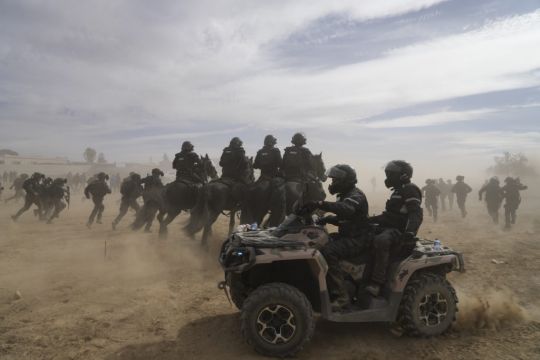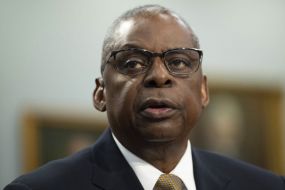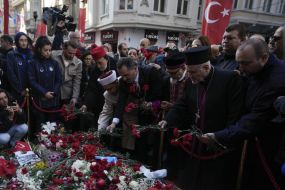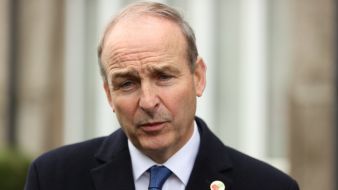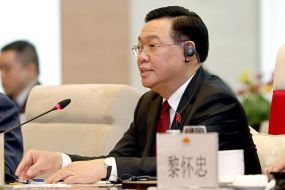Israel’s fragile governing coalition has moved to resolve a crisis after Arab Bedouin staged protests against tree-planting by nationalists on disputed land in the Negev desert.
Some protesters on Tuesday evening hurled stones at vehicles on a highway near Beersheba, blocked the railway line and torched a vehicle.
Police said two officers were wounded in the violence and local media reported at least 18 people arrested.

The government announced a compromise in which it would complete the day’s planting and launch negotiations on Thursday. Authorities withdrew heavy machinery from the area as the tensions appeared to ease.
The Bedouin view the forestry project as part of a larger attempt by authorities to confiscate grazing lands and force them into planned communities, a perceived assault on their traditional lifestyle.
Israel says they need to move into planned towns so it can provide public services.

The latest flare-up of the dispute, which goes back decades, risks dividing Israel’s fragile coalition government, the first to include an Arab party whose main base of support is in the Negev.
Foreign minister Yair Lapid had called for a halt to the planting and a reassessment of the situation, while the Islamist Ra’am party had threatened to withhold its votes in parliament in protest.
Both are members of the fragile eight-party coalition that runs the government.
Ra’am secured four seats in the 120-member Knesset parliament in last year’s elections, with strong support among Bedouin citizens of Israel.

Party leader Mansour Abbas wrote on Twitter that “a tree is not more important than a person”.
More hawkish members of the governing coalition had pledged to press on, undeterred. Regavim, a nationalist group that is opposed to normalising the status of Bedouin villages, accused the government of capitulating to “political pressure, strong-arm tactics and violence”.
Prime Minister Naftali Bennett heads an unwieldy coalition of eight parties that joined forces in June to form a government and end Israel’s protracted political deadlock.
They range from small Islamist and liberal parties to ultranationalists, and were united only in their opposition to long-time leader Benjamin Netanyahu.
The Bedouin are part of Israel’s Arab minority, which makes up 20% of the country’s population. They have citizenship including the right to vote, but face discrimination.
Arab citizens of Israel have close family ties to the Palestinians and largely identify with their cause.
